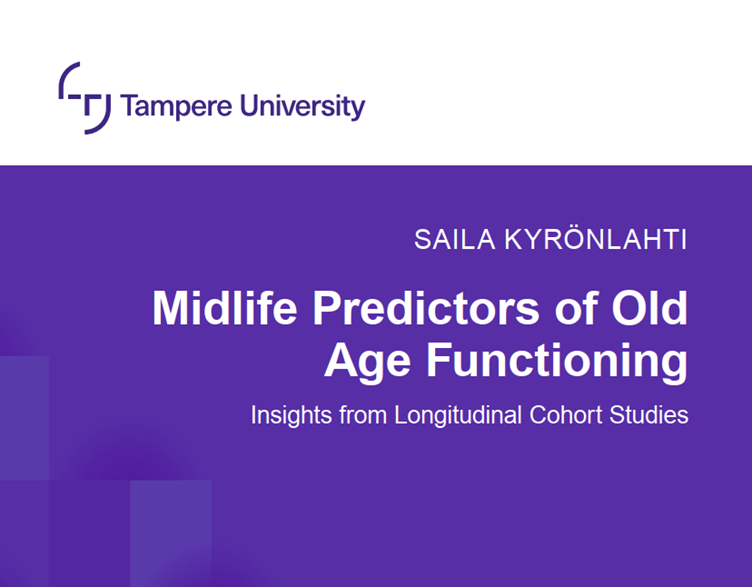Physiotherapist and Master of Health Sciences Saila Kyrönlahti’s PhD research examines the impact of education level, lower back pain, and physical workload during late working life on functional capacity in old age. The study highlights how these factors influence aging workers’ long-term functional ability and the importance of timely preventive measures.
Good functional ability in old age supports independence and participation in meaningful activities. With an aging population, maintaining functional capacity becomes a growing societal challenge. Kyrönlahti’s research explores how lower back pain and physical workload in late careers affect physical functioning in old age. She also investigates educational differences in functional decline and the factors driving these disparities.
Aging leads to biological changes that make late career a critical period for physical functioning, as the body’s ability to repair declines. Kyrönlahti notes that functional deterioration, leading to limitations in old age, can begin earlier than expected.
The study is based on data from three major sources: the Health 2000 and 2011 study (2000–2011), the FLAME study of aging municipal workers (1981–2009), and the US Health and Retirement Study (1992–2016). The research is part of a larger Academy of Finland-funded project examining midlife health risks and their impact on old age health.
Results show that lower education is linked to a faster decline in physical function, partly due to heavier physical workloads and higher body mass index. Most participants had consistent physical workload levels from midlife to retirement, and those with physically demanding jobs were more likely to experience mobility issues 20 years later.
Kyrönlahti suggests that managing work-related physical strain and preventing obesity in late careers could improve long-term functional capacity and reduce educational disparities in aging.
Lower back pain in midlife predicts mobility and functional ability in old age. Kyrönlahti found that back pain in midlife often persists into old age, with those frequently experiencing pain facing more mobility challenges. Physically demanding jobs were linked to higher levels of persistent back pain, indicating that back pain may play a key role in the relationship between workload and functional decline.
Kyrönlahti emphasizes that a late-career is a crucial time to influence old age functioning. Reducing physical strain on aging workers could help address health inequalities and promote better functioning in old age. She also stresses the importance of managing and preventing lower back pain to maintain functional capacity.
Saila Kyrönlahti is a specialist researcher at the National Institute for Health and Welfare (THL) in memory research.
The dissertation in the field of Occupational Health titled “Midlife Predictors of Old Age Functioning: Insights from Longitudinal Cohort Studies”, will be publicly examined at the Tampere University Faculty of Social Sciences on Friday 27 September 2024 from 1 pm (Jarmo Visakorpi Hall, Arvo Ylpön katu 34, Tampere). The opponent is Professor Hugo Westerlund, Stockholm University, and Docent Subas Neupane acts as custos. 
Link to dissertation: https://trepo.tuni.fi/bitstream/handle/10024/160034/978-952-03-3594-6.pdf?sequence=2&isAllowed=y


